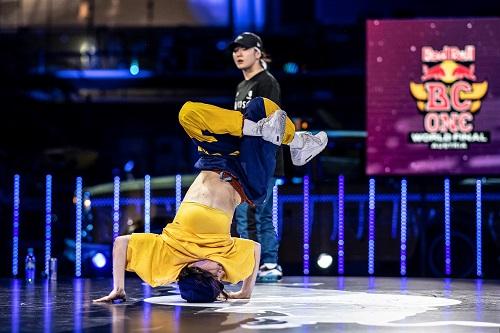

“Breakdancing?” they were asking. “Didn’t that die off after the 80s?”
Far from it. The sport is alive and well globally (including here in the U.S.) – and organizers are banking on its appearance in the Games to bring it to an even wider public.
While it might have passed out of many the collective consciousness of those outside the dance world, it enjoyed a resurgence in the new millennium, thanks in part to talent show-like television, including “So You Think You Can Dance.”
In fact, breaking, as it’s known among its enthusiasts (athletes are known as b-boys or b-girls), was already featured in the Youth Olympic Games in Buenos Aires. Over 150 athletes from 66 countries, including some of the biggest names in breaking, competed at that event.
And the IOC, which has been longing for a younger audience, saw it as a lifeline.
“We want to take sport to the youth," IOC boss Thomas Bach told the Sydney Herald in 2015. "With the many options that young people have, we cannot expect any more that they will come automatically to us. We have to go to them."
So far, there has been no definitive word as to how the sport will be staged in Paris, but if it’s anything like the Youth Olympics, it will take the form of an epic dance-off. According to the Sydney Herald, competitors performed in "showcase" rounds before the best 32 went to battle rounds. After a series of six turns each on the stage – over a battle lasting five to six minutes – a panel of judges assessed the combatants' performance and chose winners. Finally a knockout semi-finals stage, and a gold medal battle, was held.
And as with many sports that find themselves in the Olympics, the original players want to make sure it’s handled correctly. The USA Breaking Committee explained to CBS Sports in March of 2020 that if they are approved to be included in the Olympics, they would be fully prepared. That preparation has involved creating a rulebook, a uniform way of scoring and making sure all athletes are brought through the system as any Olympic athlete would be.
It is likely that the Olympics will create their own scoring system for breaking, but USA Breaking has stressed that they would like to be included in that process in hopes to keep the integrity of the sport.
Antonio Castillo, chairman of the USA Breaking Committee, told CBS Sports that breaking already "has everything an Olympic sport needs," since it is not only fun to watch (and aspirational) but it has a pre-existing culture of athletes and rivalries.
Breakdancing, which is rooted in street corner dance battles, according to this article from Red Bull, has morphed over the years into an international phenomenon.
The Sydney Herald notes that France is reportedly the second-biggest hip-hop market in the world and the sport enjoys huge popularity in China as well. In fact, a reality TV rap program in China in 2017 saw the sport explode in popularity and a recent estimate counted the "street dance" community at more than 10 million.
Current plans in Paris call for breaking to be contested on the famous square the Place de la Concorde, off the the Avenue des Champs-Élysées.
Stop and think about that for a moment. When breaking was being contested on street corners and in parks, police would shoo competitors away because the crowds they generated were blocking traffic. It brings to mind the fact that snowboarders once snuck onto ski hills at night because they weren’t allowed there during the day. And now, both sports are in the Olympics.
Of course, there will always be those who say breaking isn’t a sport. But Bobbito Garcia, one of original members of the Rock Steady Crew that helped shape and pioneer the discipline, would argue that point. Hip-hop, he notes has always been competitive, with dancers seeking to outdo one another.
“Think about it like boxing,” Garcia told theundefeated.com. “You’re stepping into a ring. You’re about to battle another warrior. The mental fortitude required, coupled with the athleticism — hell, yeah, breaking is a sport!”

